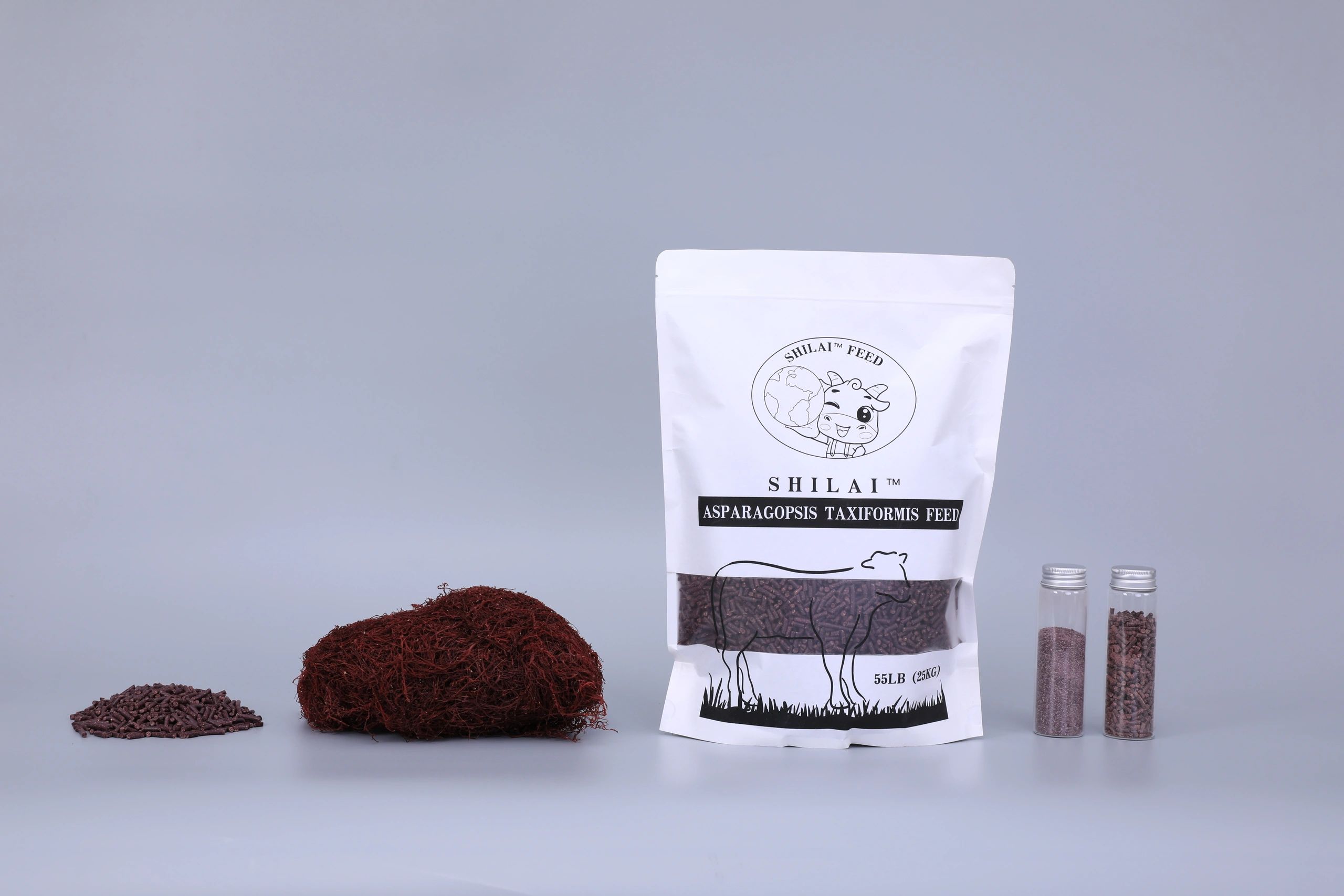Farming worldwide represents a substantial fraction of greenhouse gas emissions, principally from animal husbandry.
The climate impact of methane surpasses that of carbon dioxide on a per-molecule basis, underscoring the urgency to reduce it.
Researchers are investigating Asparagopsis taxiformis, a red marine alga, as a potential breakthrough for reducing methane from ruminants.
This seaweed contains a compound that inhibits methane formation in the rumen, thereby lowering animals’ overall methane output.
Blending Asparagopsis taxiformis into animal feeds has shown positive findings in pilot studies that indicate a feasible way to lower emissions from livestock.
- Asparagopsis taxiformis also contributes extra advantages that can support sustainable farming transitions.
- Greater nutrient uptake and robustness
- Creation of new jobs and revenue streams in the seaweed industry
Ongoing research and development are warranted, yet Asparagopsis taxiformis already shows compelling potential to lower agricultural emissions.
Unleashing the Benefits of Asparagopsis taxiformis Powder for Feed Applications
Using Asparagopsis taxiformis in powdered concentrate form could markedly improve feed solutions for livestock.
Its profile of nutrients and active substances has the potential to raise livestock productivity and health.
Adding A. taxiformis powder to formulations has produced methane reductions in experiments and may enrich feeds with vital micronutrients.
Expanded experimental work is required to refine inclusion levels, manufacturing approaches, and comprehensive safety data.
Asparagopsis taxiformis: Toward More Sustainable Livestock Systems
Asparagopsis taxiformis has come to prominence as a candidate solution for environmental concerns in animal agriculture.
Incorporating the seaweed into diets can translate into concrete methane cuts and improved sustainability outcomes on farms.
Research findings indicate the seaweed may also enhance productivity and health markers in livestock alongside emission cuts.
More work to verify long-term safety and logistical viability is necessary, though early findings look promising.
Reducing Enteric Methane by Adding Asparagopsis to Feed
Research highlights Asparagopsis as a potential, effective way to minimize methane from ruminant animals.
The reduction results from interference with methanogenic archaea in the rumen caused by the seaweed’s constituents.
- Academic trials have recorded significant methane decreases for animals fed Asparagopsis under experimental conditions.
- Asparagopsis integration into feed is viewed as a sustainable strategy to reduce agricultural greenhouse gases.
- Many producers are investigating the feasibility of integrating Asparagopsis into routine feeding practices.
Asparagopsis: Oceanic Alga Reimagining Livestock Production
A promising marine-derived solution has appeared, with Asparagopsis taxiformis capable of cutting methane in ruminants.
- Trials that fed Asparagopsis to livestock documented marked methane reductions, pointing to strong environmental upside.
- This breakthrough could help reconcile food production with sustainability by lowering emissions while supporting nutrition needs.
Among emerging climate interventions, Asparagopsis is recognized for its potential to deliver near-term methane reductions in agriculture.
Refining Asparagopsis taxiformis Feed Strategies to Improve Methane Reduction
Investigations focus on ideal extraction, stabilization, and dosing to maximize the methane mitigation benefits of A. taxiformis.
The Science Behind Asparagopsis taxiformis's Methane-Lowering Effects

The underlying science ties the seaweed’s compounds to suppression of methanogenic microbes in the rumen, cutting methane formation.
The presence of bromoform is a likely mechanism for methane suppression, prompting ongoing study into dosage, residues, and safety.
Formulating Feeds with Asparagopsis to Support Sustainable Agriculture
The combination of nutritive content and functional compounds makes Asparagopsis suitable for practical feed inclusion.
Asparagopsis integration may improve nutrient density, digestive efficiency, and deliver ancillary antimicrobial or immunomodulatory effects.
Asparagopsis taxiformis as a Nature-Based Path to Greener Food Production
Asparagopsis taxiformis is emerging as a notable marine-derived option to help address climate and environmental challenges in food systems.
- In addition, Asparagopsis provides nutrient advantages that strengthen feed quality.
- Scientists and industry experts are actively exploring its uses across aquaculture, agriculture, and food production sectors.
Incorporation of the species into standard practices could yield notable environmental benefits for agriculture.
Animal Health and Productivity Gains from Asparagopsis Feed Inclusion
Asparagopsis is attracting interest as a supplement that can lower methane and concurrently bolster animal health and efficiency.
Studies report improvements in nutrient uptake and feed efficiency when Asparagopsis is integrated into rations, aiding growth.
The seaweed’s bioactives may provide antioxidant and immune-support effects that support animal robustness and disease resistance.

Growing demand for sustainable livestock solutions positions Asparagopsis as an attractive option as research and commercialization progress.
Methane-Cut Feed with Asparagopsis: Towards a Carbon Neutral Future
The industry’s need to reduce its environmental impact makes Asparagopsis a relevant intervention to cut methane from ruminants.
- Studies attribute the methane decline to interference with methanogenic microbes by compounds present in the seaweed.
- Empirical studies provide promising evidence that diet inclusion of Asparagopsis can substantially lower methane emissions.
This feed innovation could help shift food production toward lower emissions and greater climate resilience.